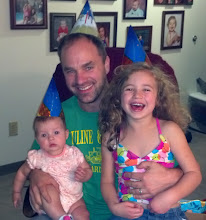We've been discussing Robert Kane's libertarianism. (As noted in class, libertarianism is the view that incompatibilism is the case (i.e., that free will and determinism are incompatible) and that we have free will.)
Here are two interesting (lengthy) passages from Kane that I'd like you to consider:
"UR thus entails both indeterminism and alternative possibilities or AP. But it entails them by different argumentative routes. Two separate regresses are involved. (I call this the "dual regress of free will.") The first regress begins with the requirement (of UR) that agents must be responsible by virtue of past voluntary actions for anything that is a sufficient cause of their actions. Stopping this regress requires that if agents are to have free will, some actions in their life histories must be undetermined (must lack sufficient causes). The second regress begins with the requirement that agents be responsible by virtue of past voluntary actions for anything that is a sufficient motive for their actions. Stopping this regress requires that some actions in an agent's life history must be will-setting (so they do not have sufficient motives already set) and hence must satisfy the plurality conditions and hence AP."
Kane continues:
"The first of these two regresses results from the requirement that we be ultimate sources of our actions, the second from the requirement that we be ultimate sources of our wills (to perform those actions). If the second requirement were not added, we might have a world in which all the will-setting was done by someone or something other than the agents themselves, as in the imagined world in which all the will-setting was done by God. Agents in such a world might be unhindered in the pursuit of their purposes or ends, but it would never be "up to them" what purposes or ends they pursued. To have free will therefore is to be the ultimate designer of one's own purposes or ends or goals. And if we are to be the ultimate designers of our own purposes or ends, there must be some actions in our life histories that are will-setting, plural voluntary [i.e., could have acted in more than way in accordance with one's will] and undetermined by someone or something else." (22)
Note all of the theological connections. What Kane calls the imagined world (i.e, a world in which God does all of the will-setting) is what many theologians and church-goers regard as the actual world. If Kane is right, then all of those theologians and church-goers are mistaken (and so should change the way they think and speak about God's involvement with the world).
Comment upon Kane's claims here. Is he right about this? Where does he go wrong, if anywhere?
Be sure to interact with each other. And again, be sure to take advantage of this opportunity to have directed, focused conversation on such matters.
Tuesday, March 30, 2010
Wednesday, March 17, 2010
The Consequence Argument
This is perhaps the shortest blog post I've done: So what do you make of The Consequence Argument?
Thursday, March 11, 2010
Starting to Think about the Problem of Free Will
Here's a nice presentation of the problem of free will by our good friend Peter van Inwagen (who has thought a lot about this matter):
http://www.closertotruth.com/video-profile/What-is-Free-Will-Peter-van-Inwagen-/1090
Here's what I want you to do:
(1) Watch the video carefully. Watch it again if you have to (and take notes).
(2) Evaluate the claims/arguments offered. What's one to do here with this problem?
Be sure to interact with each other. Take advantage of the opportunity.
http://www.closertotruth.com/video-profile/What-is-Free-Will-Peter-van-Inwagen-/1090
Here's what I want you to do:
(1) Watch the video carefully. Watch it again if you have to (and take notes).
(2) Evaluate the claims/arguments offered. What's one to do here with this problem?
Be sure to interact with each other. Take advantage of the opportunity.
Subscribe to:
Comments (Atom)

